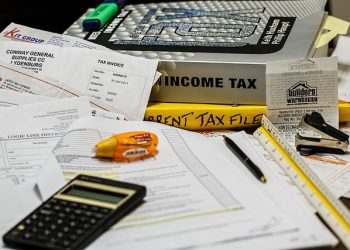Regardless of the worldwide location where they live and work, US citizens and Green Card holders are liable to file returns with the IRS each year. As a US expat, you’ll check with the IRS for information about the taxable brackets that apply to your situation and declare income. Your U.S. expat tax CPA will help you file returns even if your aggregate income is below the taxable limit. Finding out about the available exclusions for the current assessment year can help you lower the tax burden and stay compliant with the regulations. Here’s some added information you’ll find helpful.
Tax Brackets for 2022
US citizens, Green Card holders, residents, and expats are taxed according to a staggered rate depending on their total income. Keep in mind that this limit is adjusted each year to account for inflation. For instance, for the year 2022, if you’re an individual taxpayer earning an income of $0 to $10,275, you’ll pay a tax rate of 10% of your income. Married or joint taxpayers earning between $0 and $20,550, and family heads with dependents earning between $0 and $14,650 are also taxed similarly. The tax rate goes up to 22% for individuals earning between $41,775 and $89,075 and 35% for incomes from $215,950 to $539,900.
Excludable Expat Income is Also Adjusted Each Year
US expats must declare their total income from worldwide sources in their returns, even if they pay taxes in their new host country. However, the IRS has provisions to help you avoid paying taxes twice on the same income to two different countries. Accordingly, you can avail of the Foreign Earned Income Exclusion (FEIE). This allowance lets you deduct your gross income from a preset figure and pay taxes only on the balance. Adjusted every year, this limit has been fixed at $112,000 for 2022.
And, that’s not all. You can also claim a Foreign Tax Credit (FTC) to offset the taxes you paid to the country where you currently reside. Of course, you can only claim one of these exclusions on a single return. Your CPA will advise you on the appropriate exclusion to claim that will save you the most tax.
Determining Your Non-Resident Status
For expats to claim exclusions, they must determine their non-resident status accurately. Individuals who live in an overseas country for 330 days out of 365 days in a year are considered expats. When calculating this time, make sure to account for travel dates because you cannot include them in your residency status.
Further, you can calculate the days irrespective of the financial year, which extends from January 1st to December 31st. Expats can also claim a Bona Fide residency if they own or lease a home in the host country or have family living there. Assets in local bank accounts, which must be declared in the FBAR, health insurance, and a gym membership, can also get you the expat status.
Taxation laws and exclusions can be hard to understand, so relying on a CPA is always advisable.







